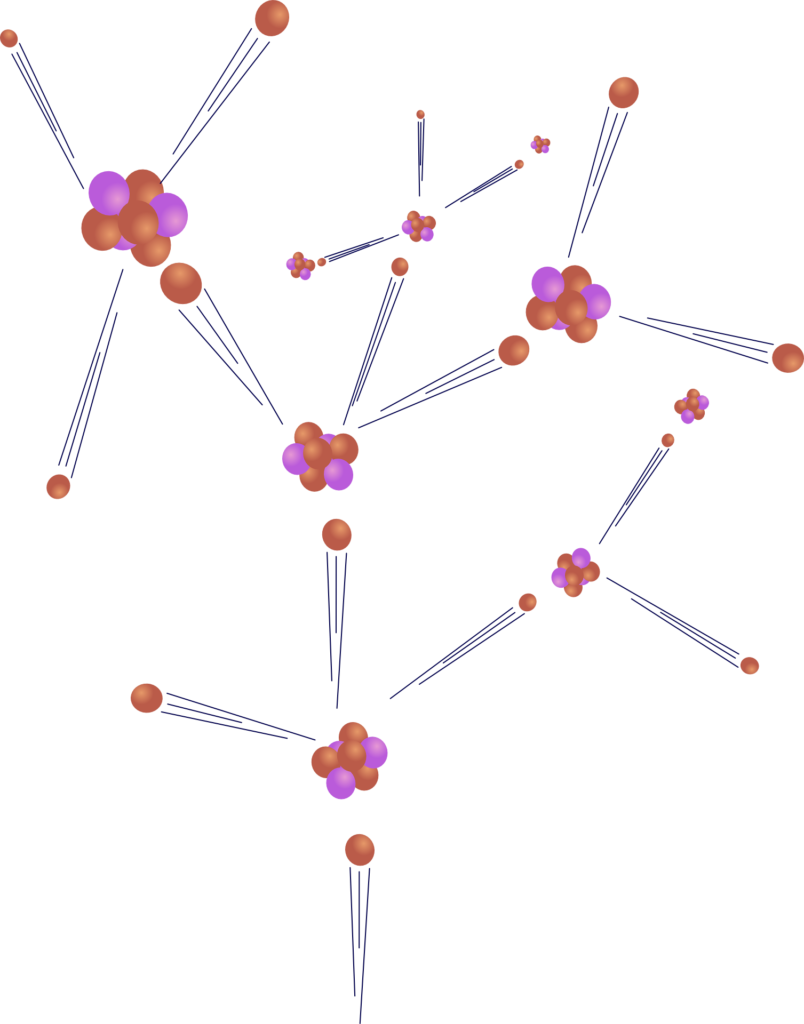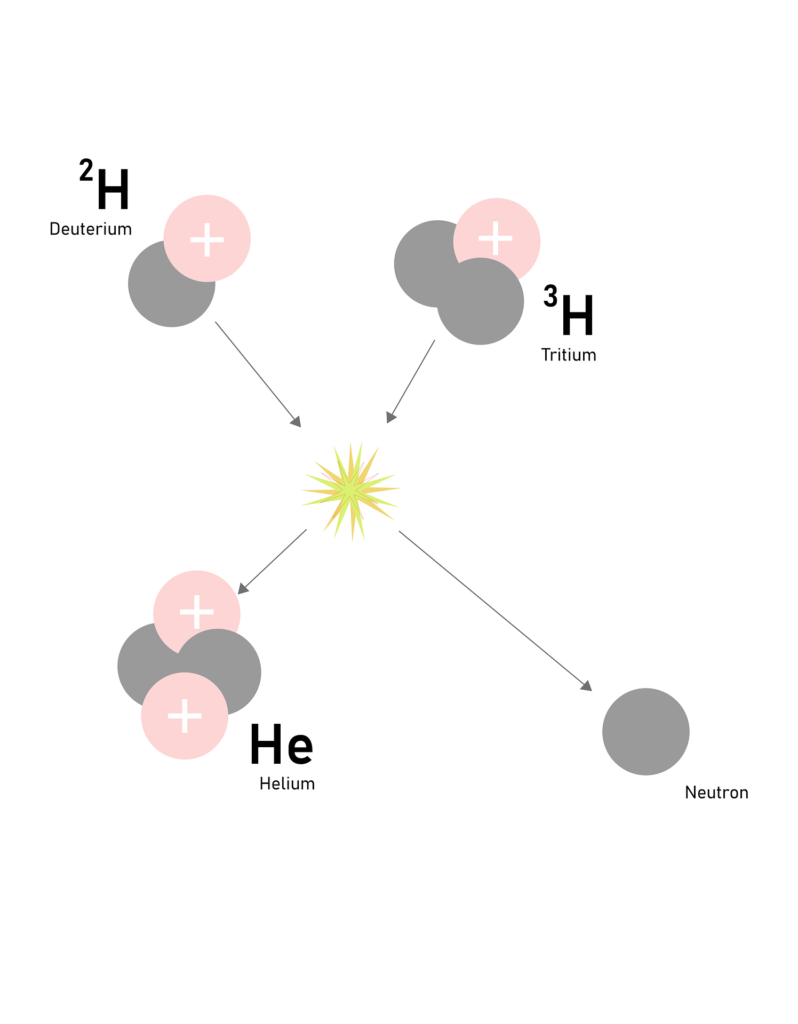Belgium hosted the first-ever Nuclear Energy Summit on March 21 in Brussels which was co-chaired by the Prime Minister of Belgium Alexander Dee Croo and the Director General of the International Atomic Energy Agency (IAEA) Rafael Mariano Grossi. Several other World Leaders also joined the Summit to highlight the role of Nuclear Energy in addressing climate change. The United Nations Climate Change Conference (COP28) in Dubai (UAE) in December 2023 stated the indispensable role of Nuclear Energy in addressing to meet the climate change goals.
Table of Contents
What is Nuclear Energy?
Nuclear energy is released during nuclear reactions, either through the fusion or fission of atomic nuclei. Unlike traditional energy sources like coal or oil, which rely on chemical processes, nuclear energy harnesses the immense power within the nucleus of an atom.
Nuclear Fission:
Nuclear fission involves splitting the nucleus of an atom into smaller fragments. This process releases a significant amount of energy and is the principle behind nuclear reactors and atomic bombs. In nuclear power plants, uranium-235 or plutonium-239 undergoes fission, generating heat that is used to produce steam, which then drives turbines to generate electricity.

Nuclear Fusion:
On the other hand, nuclear fusion combines atomic nuclei to form a heavier nucleus. This is the energy source of the sun and stars, where hydrogen nuclei fuse to form helium, releasing vast amounts of energy. While fusion has immense potential as a clean and abundant energy source, achieving controlled fusion reactions on Earth has been a significant scientific and engineering challenge.

Key Differences Between Fusion and Fission
- Energy Release: Fission releases energy by splitting atoms, while fusion releases energy by combining atoms.
- Fuel Requirements: Fission typically uses uranium or plutonium as fuel, while fusion relies on isotopes of hydrogen, such as deuterium and tritium.
- Waste Products: Fission produces radioactive waste that requires careful disposal, whereas fusion generates minimal long-lived radioactive waste.
- Reaction Control: Fission reactions can be controlled more easily, allowing for stable power generation, while fusion reactions require precise conditions and temperatures to sustain.
Applications of Nuclear Energy
Nuclear Power Generation
One of the primary applications of nuclear energy is power generation. Nuclear power plants use controlled fission reactions to produce electricity, supplying a significant portion of the world’s energy needs. Despite concerns about safety and waste disposal, nuclear power remains a key player in the global energy landscape, offering a low-carbon alternative to fossil fuels.
Medical and Scientific Research
Nuclear technologies are also essential in medical diagnostics and treatment. Techniques like nuclear imaging and radiation therapy rely on radioactive isotopes for diagnosing diseases and treating cancer. Additionally, nuclear science plays a crucial role in scientific research, from understanding atomic structure to exploring new materials and technologies.
Space Exploration
In the realm of space exploration, nuclear energy offers unique advantages. Nuclear reactors can provide long-lasting power for spacecraft and missions to distant planets or deep space, where solar power may be limited or unavailable.
Advantages of using Nuclear Energy
1. Clean Energy Source
Nuclear energy is often hailed as a clean energy source because it produces minimal greenhouse gas emissions compared to fossil fuels. Unlike coal or oil, nuclear power plants do not emit carbon dioxide (CO2) during operation. This characteristic makes nuclear energy an attractive option for reducing air pollution and combating climate change.
2. High Energy Density
Another significant advantage of nuclear energy is its high energy density. A small amount of nuclear fuel can generate a large amount of energy. This efficiency is crucial for meeting growing energy demands without significantly increasing the physical footprint of power plants.
3. Reliability and Stability
Nuclear power plants are known for their reliability and stability in energy production. Unlike renewable sources like solar and wind, which depend on weather conditions, nuclear plants can operate continuously, providing a stable base load of electricity to the grid.
4. Energy Security
Shifting towards nuclear energy can enhance energy security by reducing dependence on imported fossil fuels. Countries with limited domestic fossil fuel reserves can benefit from nuclear power’s ability to diversify the energy mix and reduce vulnerability to supply disruptions.
5. Long-Term Sustainability
Nuclear energy offers long-term sustainability benefits. With advancements in nuclear technology, such as breeder reactors and nuclear waste recycling, the potential for extending fuel supply and reducing radioactive waste has increased, making nuclear energy a more sustainable option for the future.
6. Economic Viability
While the initial capital costs of building nuclear power plants can be high, the long-term operational costs are often competitive with other forms of energy generation. Additionally, nuclear energy creates jobs in various sectors, from plant construction to maintenance and fuel supply, contributing to economic growth.
7. Continuous Innovation
The nuclear energy sector is characterized by continuous innovation and research. New technologies, such as advanced reactor designs and safety systems, aim to further improve the efficiency, safety, and environmental performance of nuclear power, ensuring its relevance in the evolving energy landscape.
8. Reduced Air Pollution
By replacing fossil fuel-based power generation with nuclear energy, we can significantly reduce harmful air pollutants such as sulfur dioxide (SO2), nitrogen oxides (NOx), and particulate matter. This reduction in pollution leads to improved air quality and public health benefits.
9. Climate Resilience
As climate change impacts become more pronounced, the need for climate-resilient energy infrastructure grows. Nuclear power plants, with their low carbon footprint and operational stability, can contribute to mitigating the effects of climate change and ensuring a more resilient energy system.
10. Global Collaboration and Standards
The shift towards nuclear energy also fosters global collaboration in safety standards, waste management, and non-proliferation efforts. International cooperation promotes transparency, accountability, and best practices, enhancing the overall safety and security of nuclear energy facilities worldwide.
Challenges and Concerns
While nuclear energy offers numerous benefits, it is not without its challenges and concerns, which have contributed to ongoing debates and regulatory scrutiny worldwide.
1. Safety Risks
One of the primary concerns associated with nuclear energy is the potential for accidents that can lead to catastrophic consequences, as evidenced by events like the Chornobyl and Fukushima disasters. Ensuring stringent safety measures and effective regulatory oversight is essential to minimize such risks.
2. Nuclear Waste Management
The disposal of radioactive waste generated by nuclear power plants remains a significant challenge. Safe storage and long-term management of nuclear waste require robust strategies to prevent environmental contamination and health hazards.
3. Cost and Economic Viability
The construction and maintenance of nuclear power facilities involve substantial upfront costs, and the decommissioning process adds to the overall expenses. The economic viability of nuclear energy often depends on factors such as government subsidies, regulatory frameworks, and market conditions.
Global Perspectives and Policies
Different countries approach nuclear energy with varying perspectives and policies influenced by factors such as technological advancements, public opinion, energy demand, and environmental commitments.
1. Pro-Nuclear Countries
Some countries, including the United States, France, China, and Russia, have extensive nuclear energy programs and view nuclear power as a crucial component of their energy mix. These nations invest in research, development, and infrastructure to support nuclear energy expansion.
2. Anti-Nuclear Sentiments
On the other hand, several countries and environmental groups advocate against nuclear energy due to safety concerns, radioactive waste issues, and the potential for nuclear proliferation. Germany, for instance, has embarked on phasing out nuclear power, focusing instead on renewable energy sources.
Conclusion
The global discourse on nuclear energy encompasses a spectrum of perspectives, ranging from staunch advocates to vocal critics. While nuclear power offers advantages such as clean energy generation and energy independence, addressing safety risks, waste management challenges, and economic considerations remains paramount. As technologies evolve and regulatory frameworks evolve, finding a balanced approach that maximizes the benefits of nuclear energy while mitigating its drawbacks will be crucial for shaping the energy landscape of the future.
